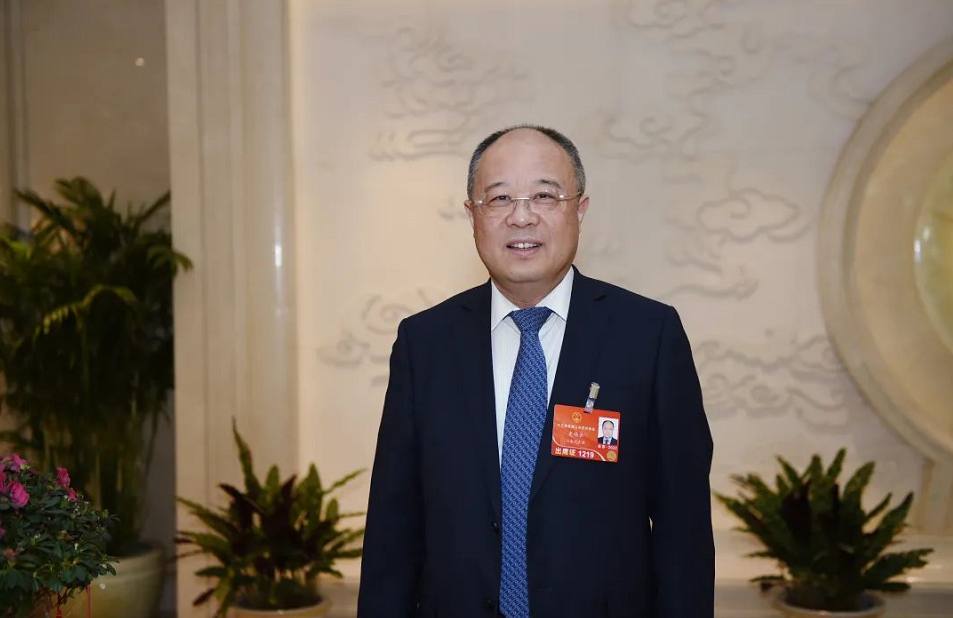Source: China eye mobile news
It is suggested to legislate on the donation of remains, organs and tissues
In 2007, the State Council promulgated the regulations on human organ transplantation. After more than 10 years of work, China has become the second largest organ donor in the world, donating more than 6000 cases and obtaining more than 20000 organs every year. China has gained rich practical experience in organ donation, body and cornea donation.
The conditions are ripe to complete the legislation of the National People's Congress and formulate broader laws and regulations on human donation on the basis of the regulations on organ transplantation. The introduction of the human donation law can define the rights, responsibilities and interests of donors, executors, receiving units and other parties. It is a necessary way to promote and ensure the healthy development of human donation and transplantation in China, and provides a fundamental basis for the donation cause in China. At present, the legislation of human donation is feasible: first, a set of basic norms and systems of human donation have been established; second, the management system has been basically straightened out, and the responsibilities of various departments are relatively clear.
Due to the limitations of the current regulations on human organ transplantation, there is no specific superior law as the basis for the formulation of the regulations. Without the law as the basis of behavior, China's remains (cornea) and organ donation can not be fully protected by law, and the right subjects of donors, doctors, recipients, medical institutions and other parties can not enjoy clear, clear and necessary rights and responsibilities. Hundreds of thousands and millions of donations to be realized in the future will always move forward "with illness". And most developed countries in the world have formulated unified laws on the donation and transplantation of human organs to regulate and promote the development of human organ transplantation.
Ruling the country by law is the foundation of our country. At present, the speed and quality of legal construction in China are making rapid progress. Therefore, it is urgent to improve the legislation on body and organ donation.
Improve the evaluation system of innovative medical devices in China
As an important tool of modern medical treatment, medical devices are the basic equipment in the construction of national medical and health system. The independent innovation and localization of medical devices are of great significance to national health security. The health plan of the 1.4 billion Chinese people is inseparable from domestic high-quality and innovative medical devices.
Recommendations:
1. Establish a set of fast approval channels for innovative medical devices
From the opinions of the State Council on reforming the review and approval system of drugs and medical devices issued in 2015, it can be seen that only one of the 12 main tasks is for medical devices, which shows that the proportion of medical device review and reform is low. Truly innovative medical devices should be products that do not exist in the world. Therefore, how to encourage the development of innovative medical devices in China is to innovate the relevant national examination and approval system first. Otherwise, we have to always follow the road of imitating products.
2. Establish special approval channels for rarely used (rarely used clinically) medical devices
Because these medical devices have neither market resources, technical input nor policy encouragement, and their use is very small, even if they are successfully developed, due to the formation of high-cost investment in the evaluation process, the product price is much higher than the affordability of the masses. Therefore, it is suggested to introduce special evaluation methods for the evaluation of rarely used (rarely used clinically) medical devices, which can also fully learn from the original intention and spirit of rare disease management.
3. Establish a rapid approval channel for devices with no available diseases and urgent clinical needs.
4. Establish the examination and approval of medical devices that fill the gap at home and abroad.
Introduction to Professor Shi Weiyun, deputy to the National People's Congress

Shi Weiyun, Secretary of the Party committee and director of Shandong Institute of Ophthalmology and President of Shandong Eye Hospital; Second level Professor, chief physician, doctoral supervisor.
He has been engaged in the teaching and research of ophthalmic medicine for 38 years and has successively presided over more than 30 key projects of the National Natural Science Foundation of China. Published 3 monographs and 385 papers in people's Health Publishing House, including 119 leading or corresponding authors (9 papers in ophthalmic JCR area I); Winner of the highest award in Shandong Province (2017), 2 second prizes of national scientific and technological progress, 4 first prizes of scientific and technological progress in Shandong Province and 1 second prize of Chinese medical scientific and technological progress.
He is a deputy to the 13th National People's Congress; At present, he is a member of the Standing Committee of the ophthalmology branch of the Chinese Medical Association, the leader of the keratology group, an expert member of the Chinese ophthalmology branch, and the deputy editor in chief of the Chinese Journal of Ophthalmology. Expert with special government allowance of the State Council and distinguished expert of Shandong Taishan post climbing plan. Won Wu Jieping Paul Janssen medical and pharmaceutical research award and other awards, and trained more than 100 doctors and masters.